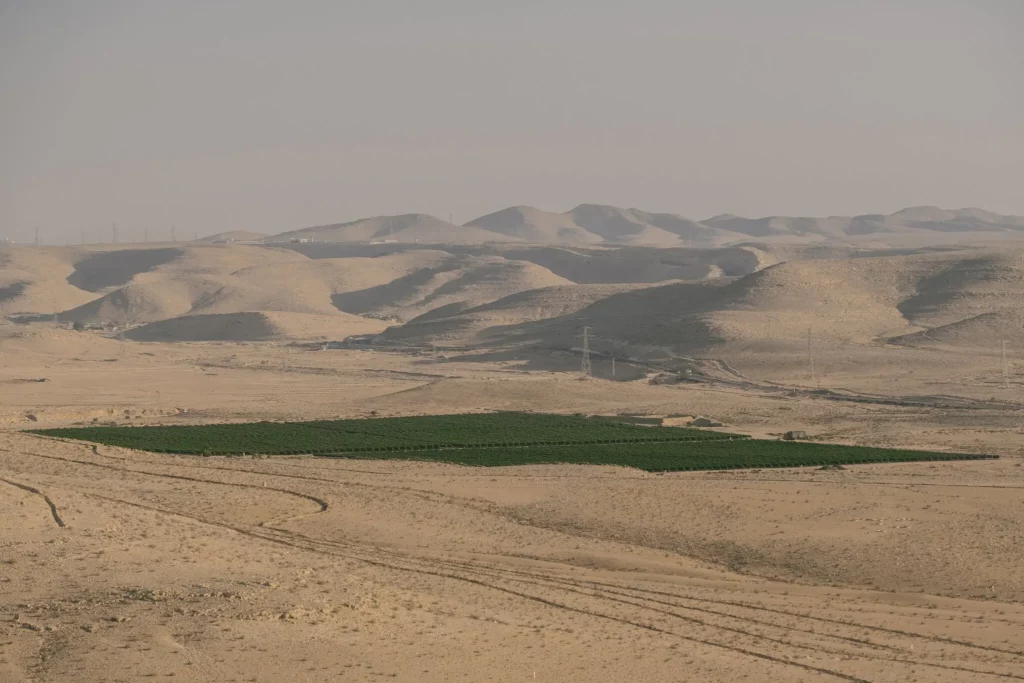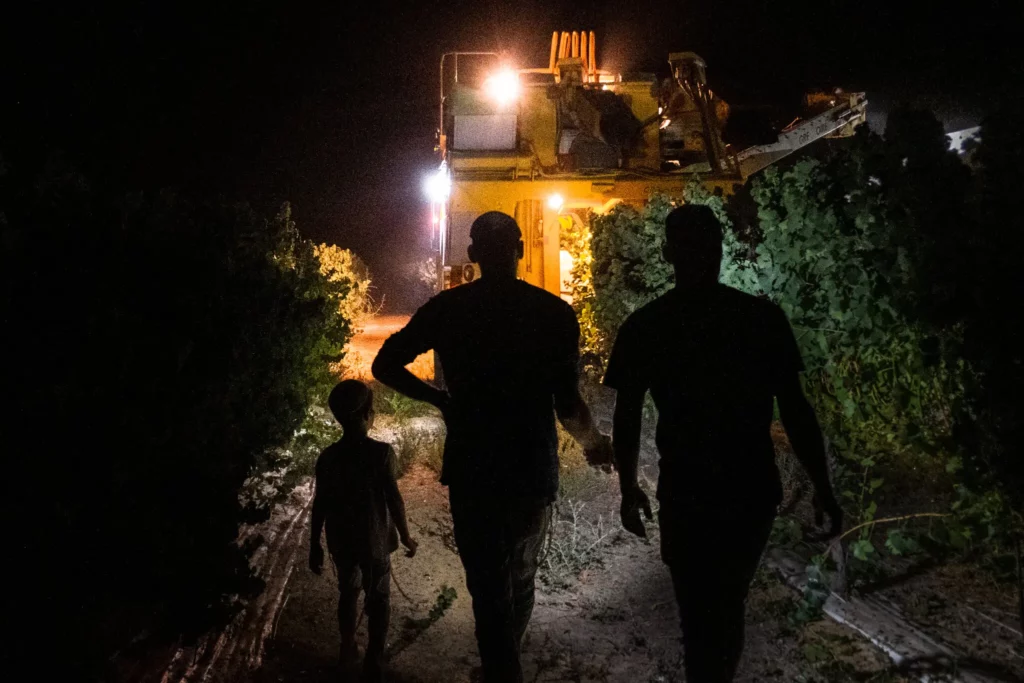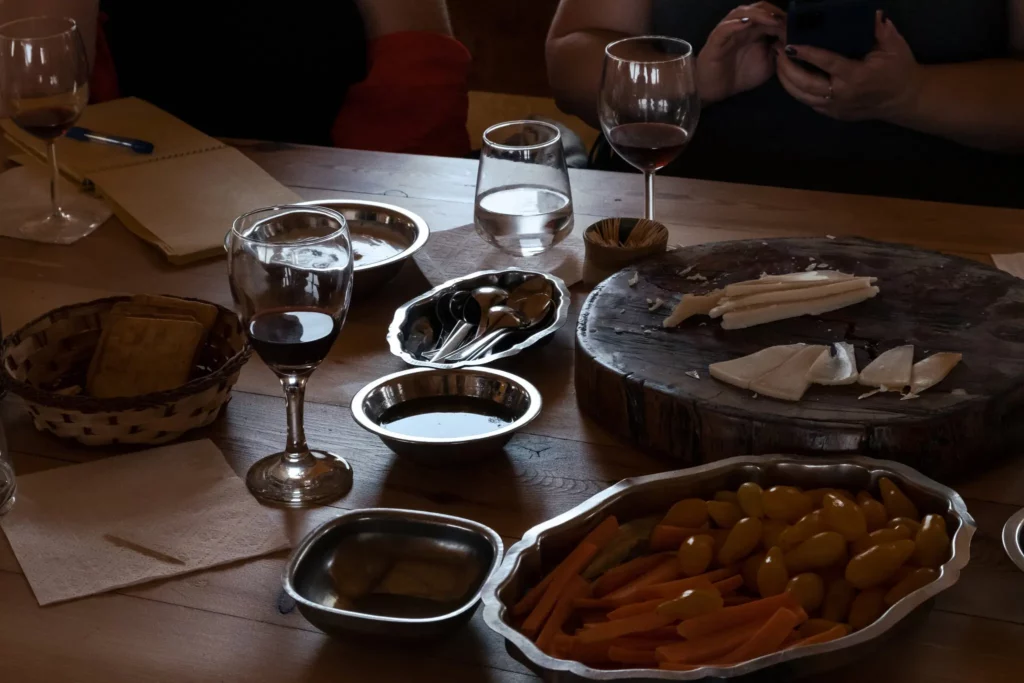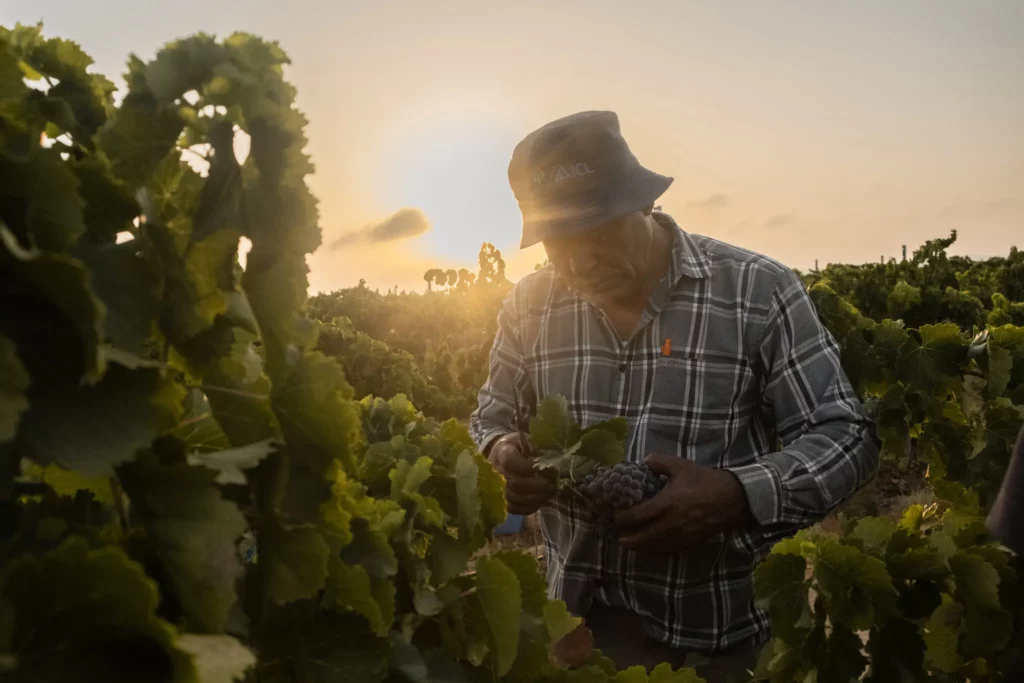SDE BOKER, Israel — Say “wine tasting,” and the words immediately conjure images of verdant hills in Napa Valley or Tuscany. What they don’t bring to mind: the desert.
But at a small cafe on a communal farm in the Negev Desert in southern Israel, a local winemaker was pouring a variety of deep crimson nectars last month, inviting some guests to swirl their glasses to release the fruity flavors and aromas.
As growers in more established wine-producing areas of Europe and elsewhere in the world battle unpredictable, extreme weather, including scorching heat waves, Israelis have found themselves at the vanguard of dry-weather wine production, testing approaches that might soon find more global application.
And the work is being done in the Negev, home to hundreds of technology start-ups and a futuristic solar tower — and long a laboratory for experimentation in Israel.
“It is in the Negev that the creativity and pioneering vigor of Israel shall be tested,” read an inscription on the cafe’s wall — an iconic quote from David Ben-Gurion, Israel’s founding prime minister, who lived out his last years about 50 yards away, in an austere wooden cabin.

Still, even Ben-Gurion probably could not have imagined the unexpected scene at the cafe, whose shelves were stacked with bottles of locally produced malbec, merlot and petit verdot syrah. He might have also blanched at the prices. The boutique winery produces a selection of 5,000 bottles in a good year, and they go for a pricey — by local standards — $27 to $45 a bottle.
“Water is very expensive here,” Zvi Remak, the local winemaker, said.
The cafe and winery are part of the Sde Boker communal farm, founded in 1952 and once better known for its less bourgeois products, peaches and sheep. But in the 1990s, Mr. Remak, a commune member and an agronomist, planted a vineyard and, after a period of study back in his native California, turned to winemaking.
“It was a bit complicated,” Mr. Remak recalled. He needed permission from the community, whose orientation had started out “almost Soviet” in its utilitarianism and whose decision makers needed some time to adjust to the idea of handcrafted reds aged in oak barrels.

But he convinced them, and then others followed in his footsteps. Today, about 40 boutique wineries are scattered throughout the Negev, their emerald-green vineyards dotting the stark beige landscape.
Desert viniculture, and the tourists beginning to explore this relatively new wine route, have become important to the development and rebranding of the arid expanses that make up half the territory of Israel.
Some stops on the Negev wine route are still a bit rough around the edges, in the spirit of desert survival.
The Tzel HaMidbar winery and ranch, on the edge of the stunning Ramon Crater, offers accommodations in spartan mud houses, outfitted with little more than a bed and air-conditioner. Some of its vines grow in a valley below a prison and are irrigated with recycled wastewater from the lockup.
“Wine and the desert sounds absurd, like a kind of oxymoron,” Ziv Spector, a co-founder of Tzel HaMidbar, said as he poured a local red petit verdot.

But his vines have risen to the challenge of the poor desert earth, which only makes them hardier, he said, as opposed to those that have it easy like “a spoiled child.”
While these Negev vineyards are new, making wine here is not. The area was famed for its locally produced wines in ancient times.
But the climate then was probably more forgiving than it is now, and the area’s wineries are developing farming techniques that might soon need to be replicated around the globe, as the effects of climate change worsen.
“To succeed in the Negev, you have to be bold and experiment,” said David Pinto, a vintner who planted his family plot with vines about three years ago.
Taking a corkscrew to a 2021 rosé on a vivid green patch of lawn by his vineyard on the edge of Yeruham, a small desert town, Mr. Pinto said a new chardonnay from his winery would be out in January and a sparkling white, the Negev’s first, would be ready in two years’ time.
The heavy clusters of purple grenache and syrah grapes ripen quickly on vines in the harsh desert sun. The trick, Mr. Pinto said, is to find the sweet spot where the high sugar content is kept in balance by the level of acidity.

So harvest time comes earlier here than in other Israeli wine-producing areas to the north that have a more Mediterranean climate. Several Bedouin women have been hired to come and handpick the juicy bunches in the cool of dawn.
With some 325 days of sunshine and little annual rainfall, the desert vines depend on drip irrigation, an innovation developed by another Negev collective in the 1960s that allows the farmer to tightly control the amount of water.
Desert vineyards also come with some natural advantages.
At night the temperatures drop steeply, even in midsummer, benefiting the vines. With low humidity, the Negev vines are exposed to few pests and fungi and require little pesticide spraying, making much of the wine production close to organic.
While artificial irrigation is frowned upon in traditional winegrowing regions in Europe, and is even banned in some locales, it may become more of a necessity.
And in a global wine industry that must adapt to climate change, Israel could be a role model, said Aaron Fait, an expert in desert research and agriculture at Ben-Gurion University of the Negev.



















Comments